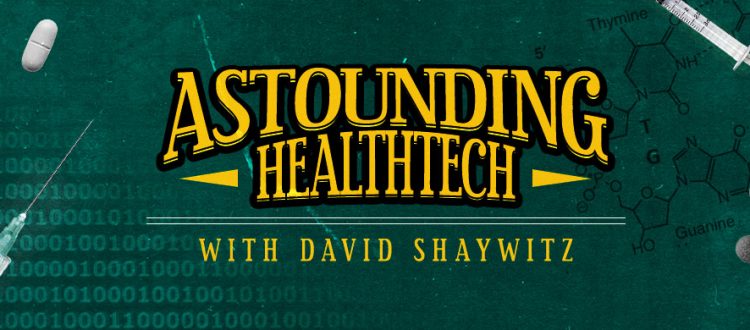Yes We Can: My Response To Skeptical Readers

David Shaywitz
Two weeks ago, I wrote about how difficult it is for R&D leaders to “pick winners,” despite the enormous incentives to do so. I explained how we tend to underestimate the role of chance, and overestimate our ability to “domesticate uncertainty,” as Nassim Taleb and I wrote in the Financial Times in 2008.
Mostly, efforts to systematically improve success rates seem to have come up short.
However, as The Princess Bride (the font of all knowledge, as VC Lisa Suennen explains here) reminds us, “mostly” doesn’t mean “completely.” Occasionally, at least for a period of time, it may be possible to find an “edge” (a term Nate Silver discusses at length in his recent book). In R&D, this would mean finding an approach, an insight, a team, an organizational structure that might be able to beat the odds consistently. 
Earlier this week, I suggested that perhaps Vertex’s approach to human causal biology has provided them just such an edge. As I emphasized, their secret sauce (if it exists) certainly isn’t the invocation of “human causal biology,” a phrase that, as BioCentury’s Karen Tkach Tuzman recently observed, “is on the lips of research heads and early-stage investors,” and seems to be associated with most every current R&D program.
I argued that Vertex (unlike many competitors) is taking this concept particularly seriously, using it as an ultra-stringent criteria for target and program selection. Unless they can find compelling evidence (usually but not invariably from human genetics) that a particular protein is associated with disease, and also that targeting it is likely to improve the disease, they’re just not interested.
Vertex’s thesis is that most programs fail because they ultimately don’t generate adequate efficacy in people, and they hope to mitigate this by ensuring that they have a very high degree of confidence in their targets.
There are obvious tradeoffs with this approach.
For one, they are deliberately not pursuing a range of compelling conditions because they don’t believe they have adequate human causal biology to support such an effort.
Vertex also strives to remain agnostic about modality, often partnering with platform companies that presumably bring the requisite expertise. Their successful campaign to develop an effective (combination) therapy for most CF patients is a vivid reminder of just how difficult it can be to develop small molecule drugs; deploying emerging technologies is likely to contribute additional degrees of difficulty and uncertainty.
Readers Respond
I anticipated that my two recent pieces about R&D might generate some discussion around what is actually meant by “causal human biology,” and how might this term be defined most usefully if the goal is to increase the odds of successful therapeutic development.
I also expected some discussion around how computational efforts to quantify causality (as reviewed by Tuzman in BioCentury) might contribute to improved decision-making in pharma, particularly in the context of Vertex’s conviction that what’s required is pivotal insights from human beings, rather than more reductionist approaches that seek to garner primary insight from volumes of data derived from human cell lines cultured in a dish.
I wasn’t surprised that these two articles engaged TR readers given our shared passion for R&D. What I didn’t expect was the emphasis of the responses, both public (via social media, mostly on Bluesky, which seems to be the new home of BioTwitter) and privately.
Virtually all of the feedback I received boiled down to: in practice, Vertex isn’t doing anything different than what others are; they do solid science, and perhaps have been a bit lucky, so be careful not to be taken in by a tidy success narrative.
One Bluesky user wrote,
Say you have 200 small/med pharma companies, with 2-10 projects each. I think just random statistics, if you look over say one 10-year window you would expect one company to have a high success rate and that company would be lauded as highly superior.
Experienced drug hunter Jonathan Rosenblum suggested there was nothing distinctive about how Vertex pursued their sodium channel pain target vs how other companies approached this target, adding,
What I know of their process is – it’s not unique. They haven’t cracked some code that others haven’t. An excellent, science-driven company nonetheless.

Frank David
Industry veteran and advisor Frank S. David added,
In past 10y I’ve seen *nothing* unique about any pharma co’s R&D decision-making process. Maybe there were differences in past, but now, they’re all cousins of AZ’s 5Rs….Stories of “better” cos are post hoc rationalizations. (Note: the “5R” reference is to this paper and subsequent elaboration.)
In addition to noting the concerns about how Vertex’s approach deliberately overlooks important conditions, and is likely to increase risk in some areas (like new modalities) while decreasing risk in others, Frank David makes another, critically important observation:
Interesting to try to predict how much of VRTX R&D decision making is hard wired into co vs dependent on judgement of top execs. I bet a lot of it is the latter. (Ditto Regeneron.) So maybe the lesson for pharma is “hire R&D execs w/ good taste & give them tons of power”? (Good luck with that…)
In other words: perhaps Vertex is a company at the sweet spot with enough resources to try a range of ambitious programs, but small enough so that it’s still guided palpably by strong, smart scientific leadership.
The private feedback I received was essentially a collective eyeroll, as readers emphasized that virtually all biopharma R&D organizations seem to be preaching from the same hymnal, and assert they are pursuing a similar strategy.
Apparently, it’s only a matter of time before inspirational “Human Causal Biology” posters, suitable for display in your company’s cafeteria, will be available for sale from Successories.
Three Possible Conclusions
Putting it all together, I can see three potential conclusions:
- Vertex has perhaps been lucky, but actually doesn’t have any durable secret sauce, and has managed to persuade some particularly susceptible investors and colleagues to believe their success narrative. In this view, the confidence exhibited by Vertex leaders today may be similar to that expressed by Pfizer execs in 2018 when they projected 15 blockbusters by 2022 (a pipe dream, as activist investor Starboard has recently highlighted).
- Vertex is actually doing something different and better, than most, but the “human causal biology” is just the MacGuffin – essentially a plot device to bring together an unusually focused and capable team of physicians and scientist in an productive organizational structure, and with individual leaders capable of delivering unusually good results.
- Vertex is actually doing something different and better than most, their organizational structure is important, but really it’s their stringent embrace of human causal biology that’s enabling them to have justifiably high confidence in the programs they advance.
And The Answer Is…
In trying to sort this out, it seems relevant to acknowledge several of my own biases.
I am incredibly partial to compelling science and compelling scientists. I also love the idea of biopharma companies led by science and scientists, rather than managers and metrics. I’ve found it incredibly sad to watch the status of R&D leaders within big pharmas decline over the course of my career, as their inevitable struggles to generate the next blockbuster (and the one after that) has often left them on the defensive, enmeshed with operational efficiency, process metrics and the latest re-org rather than delivering great science.

George Yancopoulos, president and chief scientist, Regeneron Pharmaceuticals
I’m also especially partial to the power of genetics (which I was drawn to and pursued in graduate school), and to the unique understanding that the study of the whole person provides (see here). When I joined DNAnexus as chief medical officer in 2014, I was motivated, in part, by the knowledge that DNAnexus had worked closely with Regeneron to develop the Regeneron Genetics Center, as I had always admired Regeneron’s George Yancopoulos (see here) and was an enthusiastic supporter of the Center’s ambition to integrate genetics and medical record data to guide scientific discovery.
In short, I am exquisitely set-up to buy into Vertex’s success narrative, and perhaps this is exactly what’s happening.
But if it’s true that really no R&D approach is better than any other, and it really is just throwing darts at the genome, then trying not to mess up the execution…I guess this is just a worldview I find myself unable to accept.
To make a difference, we need to find conviction around something, and I deeply believe we can leverage human causal biology to improve R&D.
I am also probably more optimistic about the opportunities to leverage powerful emerging technologies including AI than current Vertex leadership, although I share Vertex R&D head David Altshuler’s wariness about technology-first approaches.

David Altshuler, executive vice president, chief scientific officer; Vertex Pharmaceuticals
In addition, I have seen how important organizational context and culture is for R&D. While nearly all big pharmas describe themselves as science-led, this often isn’t the lived reality. Even at large companies with the best R&D intentions, earnest ambitions tend to dissolve rapidly in a miasma of metrics, process, and power politics.
In contrast, mid-size companies (as I argued back in 2012, see here) with strong scientific leadership may well be the sweet spot for R&D, as exemplified most recently by Regeneron, Vertex, and Gilead while helmed by chemist John Martin.
Bottom Line: What I Believe (about R&D)
In short: I choose to believe:
- Human causal biology, rigorously applied (which it often is not) can and should guide R&D;
- The right organizational size, structure, and leadership is essential for R&D;
- Emerging technologies like AI will help improve scientific understanding and enable better decisions – after all, it wasn’t all that long ago (1992) when critics explicitly asked if, rather than AI, it was genetics and the Human Genome Project in particular that scientists were unduly fetishizing;
- R&D will inevitably retain a huge element of chance and uncertainty, and success will always require us to be lucky as well as good.





